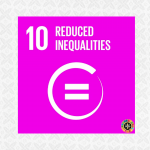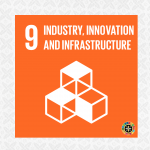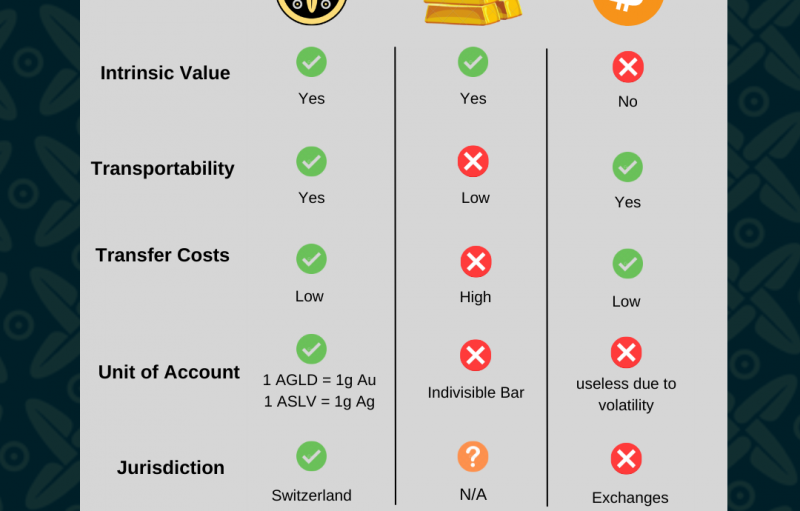
- Should Central Banks care about the climate?
- Central Bank Digital Currencies (CBDC): Who will win the Digital Currency War in 2020?
- “Cash is Trash”. Ray Dalio reaffirms the role of Gold as Money and discards Bitcoin as a good store of value
AgAu’s Founder, Thierry ARYS RUIZ,attempts to respond to all of these questions in this article:
The Davos man goes to the WEF to mingle with his millionaire and billionaire friends or at least he aspires to that. Many representatives from government or NGOs point fingers showcasing their moral high ground while simultaneously seeking the money and power of the 1%.
This year is no exception, but to mark the 50th Anniversary of Klaus Schwab’s vision, the World Economic Forum made an extra effort to improve its image. After all, the WEF is just a humble club of members “Committed to Improving the State of the World”. With all these good intentions, let us remember that in order to allow progress we need to ask the right questions, particularly those who push for critical thinking and challenge the popular opinion.
Should Central Banks care about climate change?
My first question is precisely targeted at Central Banks. I had the occasion to discuss with a BIS (Bank for International Settlements) official about what are the central banks’ mandates. In this reminder, I believe the most pressing questions are:
- Are we still standing for a free market capitalist system where prices are defined by supply and demand?
- If so, why is it that the main interest rate which is “the price of money” is not left out to the market but decided by central bankers
A typical response is that long term rates (10yr+) are driven by markets — but that is simply not true:
- First of all, in the USA, the fed funds rate is determined arbitrarily by the FOMC committee
- Second and more evidently since 2009, we have seen artificially low interest rates. The keyword is “artificial”.
- Finally, outright money market operations and other unorthodox measures such as TARP, Operation Twist, NIRP and outright bond and equity purchases (OMT, Asset Purchase Programs) are clearly questioning the rules of the game of a free market.
It begs to reiterate the question: What is the role of Central Banks? According to textbooks and their status: The ECB has only one mandate, that of price stability (inflation). The US Federal Reserve, on the other hand, has two mandates: Inflation and economic growth.
Although it seems that after the recent declarations of the new ECB chief Christine Lagarde, The ECB is keen on taking climate change onto the agenda. Bloomberg reported:
“The bank’s new president doesn’t want the review to be shaped by the ECB alone, preferring that it “turn each and every stone” and be open to the view of all national central banks, as well as academics and civil society. She also wants to look at broader questions, such as the role the ECB can play in fighting climate change.”
Manipulating asset prices have important consequences regarding Moral hazard. For example, reducing interest rates artificially put savings at a disadvantage to the benefit of debtors, particularly those who can borrow large amounts of money (The top 1%). Data shows that central bank stimulus mainly benefited those who hold financial assets; particularly the assets directly targeted by central bank purchases. Perhaps more importantly, it represents sacrificing future investment for short term risk-taking. We must remember that no investment can be made without saving first. Latest Central Bank Policies clearly create a non-sensical environment where those who save get punished, borrowers are encouraged to be irresponsible while those who invest are pushed in the risk curve to the point where they are forced into overly-risky assets, in particular, those who need returns to fulfil their obligations. This is particularly the case for pension funds. The only word in Wall Street more dangerous than “greed” and “fear” is “need”, but the pension and unfunded liabilities issue is a whole other story, that of a coming crisis in the making…
If manipulating asset prices clearly puts free-market capitalism in jeopardy, then certainly picking winners and losers is the nail in the coffin. In an article to the Financial Times it is reported:
“Ms Lagarde said about €1bn of the ECB’s pension fund assets had shifted into green investments. She added that its review would look at “how much the bank can do or should do” along similar lines with the €200bn of corporate bonds it has bought via its €2.6tn quantitative easing programme to prop up the eurozone economy, and assess “whether it collided with our mandate”…Critics say it is up to politicians, not central banks, to decide which companies to favour and which to penalise.”
I personally believe it is neither up to the ECB nor to politicians to decide which companies to favour and which to penalise. If anything, their initial role is precisely to have a level plain-field so that no one is at a systemic disadvantage.
By expanding their responsibilities beyond inflation, central banks are compromising… the new implicit mandates, unfortunately, draft a perspective of more control over the economy by central banks and a rather bleak perspective for the integrity of free-markets.
The question many market players ask themselves now is: Is there hope for free-market capitalism under these policies or can we say the game is rigged?
Central Bank Digital Currencies (CBDC): Who will win the Digital Currency War in 2020?
CHINA
Speaking about Central Banks and their internal race for dominance; we clearly see China challenging the US Dollar status-quo. the PBOC has shown to have a long-term strategy of replacing the dollar as it is now marketing its digital Renminbi (Yuan) as “opening up” to the world, particularly over the Belt and Road Initiative.
The main concern is that a digital Yuan can be a tremendous way to gain control over transactions. Depending on how it is designed, one can assume that the PBOC would have full control over financial transactions. This raises serious questions about privacy and anonymity. Knowing the track record of China when it comes to surveilliance andGiven today’s capital controls, the digital Renminbi can be seen as a “Hotel California” where you can get in but you cannot get out and this might be a perception to overcome when adopting the digital Renminbi over the Chinese Belt and Road Initiative.
Countries which signed cooperation documents related to the Belt and Road Initiative
USA
In the face of such a challenge from China the USA can:
- Create their own CBDC of Fed Coin
- Although this will only exacerbate competition between a Digital Yuan and a digital US Dollar
- Align other countries through a global basket of currencies such as the SDR (Special Drawing Rights) managed by the IMF (International Monetary Fund)
- The SDR is overweight the US Dollar (41.73%) with the Euro (30.93%), Yuan (10.92%), Yen (8.33%) and Pound Sterling (8.09%)
Although harder to implement, the latter would be somewhat of an ideal solution if it wasn’t for the inclusion of the Chinese Yuan in the basket. The IMF finds itself in at an impasse after the inclusion of the Renminbi in the SDR.
That’s why Facebook Libra comes in handy. By not being tied up to international political pressure the private initiative of Facebook could be the solution to implement a digital SDR-like currency (ex-Yuan). This would create a Western Block (USA, Europe, UK, Japan) on the one side, vs. the digital Renminbi (China + Belt and Road) on the other side.
EUROPE
Besides the Sun Tzu’s The Art of War, the Ming dynasty cherished the Thirty-Six Stratagems, an essay illustrating a series of stratagems used in politics, war, and civil interaction. Europe is somewhat suffering from Stratagem 33, 34 and 35:
33 — Let the enemy’s own spy sow discord: With Brexit and increasing division wishing an unclear leadership in Europe. The Kissinger question remains practically unanswered
34- Inflict injury on oneself to win the enemy’s trust: Pretending to be injured has two possible applications. In the first, the enemy is lulled into relaxing his guard since he no longer considers you to be an immediate threat. The second is a way of ingratiating yourself with your enemy by pretending the injury was caused by a mutual enemy. Again, a Europe after Brexit seams injured and the self-inflicted pain of the European migrant crisis have clearly created a divide within itself. While in the meantime, Italy is being accused of siding with China.
35- Chain Stratagems: The biggest problem of a Europe of 27 is that by multiplying alliances within Europe, the European Union has neutralised itself. Under a chain stratagem, the consensus of 27 is virtually impossible which results in paralysis with a particular difficulty to establish true leadership.
The return of Christine Lagarde might change the Leadership structure around the Troika (ECB, IMF, EU Commission). Ms Lagarde might be able to take a lead role as she has experience in two out of three of the Troika’s institutions. In addition, the new head of the ECB has shown open-mindedness notably in the domain of CBDCs having many to speculate of a coming digital Euro.
The Battle of Central Bank Digital Currencies in a world of Currency Wars
Currency wars are a race to the bottom in terms of purchasing power. When currency wars happen, governments and central banks essentially sacrifice the purchasing power of the constituents in order to boost artificially exports. Typically, countries take turns in debasing their currencies to boost their economies while simultaneously accusing the other countries of being a currency manipulator. As previously mentioned, the result is global inflation. Inflation is a panacea for governments, inflation act as a hidden tax. With inflation government debt is technically debased since the service of the debt is made in a depreciated currency. The losers are the people holding the currency with a much lower purchasing power; and the creditors who are being paid in fiat money. This is otherwise called “debt monetisation” in particular when the central bank’s independence is compromised (which is the case more often than not).
The problem with currency wars is that they are rarely won: First because everything else being equal when all participants engage in the same practices the effect is neutralised over the long term. Second, because inflation erodes wealth and therefore succeeding in debasing the currency is succeeding in becoming poorer.
Unfortunately, history has a precedent where Currency Wars turn into trade wars before sometimes evolving in full-blown out wars. The battle between the digital Renminbi, the Dollar or digital SDR will be in the context of currency, trade and perhaps even third world war. A war that is mainly fought through technology, capital and trade wars as well as data and intelligence, which we will touch upon later on…
In this context, we can only agree with Ray Dalio, interviewed below “Cash is Trash”.
- As economic growth slows, 2020 will likely exhibit fiscal stimulus (greater indebtedness by governments)
- Given already high levels of debt, there could only be debt-forgiveness (deflationary and less likely) or debt monetisation (very likely)
- In other words, central banks will do what they do best: Print money in one way or another.
- Financial Asset Prices are likely to display gains while seeking for the necessary yield to cover their future liabilities (Need)
- When the greed is exhausted, perhaps by a cyclical or systemic shock (financial shock, war, natural disaster…) fear will take place
- At this stage, investors will seek for safe heavens only negative yields and already inflated asset prices will not be an alternative given long term liabilities (Pensions etc.)
When the name of the game becomes: Don’t lose money, there will be very few assets left in the “Everything Bubble” investment horizon. Gold and by extent AgAu will be a valuable solution for institutional and retail investors.
Gold and AgAu: Positioned for the perfect storm
In 2011 Warren Buffet famously pointed at the fact that gold is not a yielding asset. The irony of the sorts is that 9 years later, we find ourselves with more than 17 trillion dollars sitting at negative yields which would be better off sitting at 0% with gold.
In conclusion, I strongly believe that in the short term, the competition between CBDCs will intensify but we will eventually go back to currency wars 2.0 (Digital Currency Wars). Only this time, as currencies will compete for greater adoption and greater trust. The reality is that in fact, over the long term “cash is trash” and that the only historic Money with real intrinsic value, store of value and medium of exchange is gold. Gold is more likely to win the hearts of those who want to settle international transactions with a superior form of money. AgAu is there to provide the solution to guarantee the private property of pure quality certified gold in a historically safe jurisdiction.
Watch the video below
AgAu Social Media:
Twitter: https://twitter.com/AgAuCrypto
Facebook Page: https://www.facebook.com/agaucrypto
Linkedin: https://www.linkedin.com/company/agaucrypto
Youtube: https://www.youtube.com/AgAuCrypto
Medium: https://medium.com/@AgauCrypto
Telegram Group: https://t.me/AgAuCrypto
Instagram: https://www.instagram.com/agaucrypto






